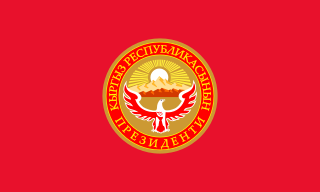Switzerland is a semi-direct democratic federal republic. The federal legislative power is vested in the two chambers of the Federal Assembly, the National Council and the Council of States. The Federal Council holds the executive power and is composed of seven power-sharing Federal Councillors elected by the Federal Assembly. The judicial branch is headed by the Federal Supreme Court of Switzerland, whose judges are elected by the Federal Assembly.

The Constitution of the Irish Free State was adopted by Act of Dáil Éireann sitting as a constituent assembly on 25 October 1922. In accordance with Article 83 of the Constitution, the Irish Free State Constitution Act 1922 of the British Parliament, which came into effect upon receiving the royal assent on 5 December 1922, provided that the Constitution would come into effect upon the issue of a Royal Proclamation, which was done on 6 December 1922. In 1937 the Constitution of the Irish Free State was replaced by the modern Constitution of Ireland following a referendum.
A constitutional amendment is a modification of the constitution of a polity, organization or other type of entity. Amendments are often interwoven into the relevant sections of an existing constitution, directly altering the text. Conversely, they can be appended to the constitution as supplemental additions (codicils), thus changing the frame of government without altering the existing text of the document.

The position of Vice-President of the Republic of Burundi was created in June 1998, when a transitional constitution went into effect. It replaced the post of Prime Minister.
The Constitution of Iraq is the fundamental law of Iraq. The first constitution came into force in 1925. The current constitution was drafted and approved in 2005.

A constitutional referendum was held in Chad on 6 June 2005. The amendments to the constitution were approved by 66% of voters.

The State Constitution of the Republic of Indonesia of 1945 is the basis for the government of Indonesia.

A constitutional referendum was held in Kyrgyzstan on 21 October 2007, following the constitutional crisis caused by amendments passed since the Tulip Revolution in 2005 being invalidated by the Constitutional Court of Kyrgyzstan on 14 September 2007. Voters were asked whether questions on a new constitution and electoral law. Both were approved by over 95% of voters.

A constitutional referendum was held in Brazil on 6 January 1963. Voters were asked whether they approved of a constitutional amendment made in 1961 that transferred many of the President's powers to the National Congress. The changes were rejected by over 80% of voters.

The Constitution of Georgia is the supreme law of Georgia. It was approved by the Parliament of Georgia on 24 August 1995 and entered into force on 17 October 1995. The Constitution replaced the Decree on State Power of November 1992 which had functioned as an interim basic law following the dissolution of the Soviet Union.

A constitutional referendum regarding the Prince’s powers was held in Liechtenstein on 14 March 2003. The referendum had two questions; a "Princely Initiative" and a "Constitution Peace Initiative". The first question passed with 64.32% in favour and the second question was rejected by 83.44% of voters.

A constitutional referendum was held in Uruguay on 19 April 1934, alongside parliamentary elections. The new constitution was approved by 95.75% of voters.

A constitutional referendum was held in Uruguay on 29 November 1942, alongside general elections. The new constitution was approved by 77.17% of voters.

A constitutional referendum was held in the Federated States of Micronesia on 27 August 2002. Voters were asked whether they approved of 14 separate amendments to the country's constitution. To be approved, the proposal required at least 75% of voters in at least three of the four states to vote in favour. Ultimately all 14 proposals were rejected, as none passed the 75% threshold in any state.

A three-part referendum was held in the Northern Mariana Islands on 6 November 1993. Voters were asked whether they approved of two constitutional amendments regarding collective land ownership of native islanders and the veto powers of the Governor, and whether a Constitutional Convention should be elected. All three proposals were approved by voters.
A constitutional referendum was held in the Philippines on 14 November 1967. On 16 March 1967 Congress decided that a Constitutional Convention would be elected in 1971. In preparation for the election, two amendments to the constitution were proposed beforehand. Voters were asked whether they approved of two amendments to the Constitution of the Philippines; one to increase the number of members of the House of Representatives from 120 to 180, and one to allow members of Congress to be elected to Constitutional Conventions without giving up their Congress seats. A petition seeking to stop the referendum was filed before the Supreme Court, but was dismissed five days before the referendum. Both proposals were rejected by voters.

A fifteen-part constitutional referendum was held in Colombia on 25 October 2003. Whilst all fifteen proposals were approved by voters, only one question had a sufficient numbers of votes to pass the 25% quorum requirement.
A referendum is a direct vote in which an entire electorate is asked to either accept or reject a particular proposal. This article summarises referendum laws and practice in various countries.
The 19th Amendment (19A) to the Constitution of Sri Lanka was passed by the 225-member Sri Lankan Parliament with 215 voting in favor, one against, one abstained and seven were absent, on 28 April 2015. The amendment envisages the dilution of many powers of Executive Presidency, which had been in force since 1978. It is the most revolutionary reform ever applied to the Constitution of Sri Lanka since JR Jayawardhane became the first Executive President of Sri Lanka in 1978.

A nineteen-part referendum was held in the Northern Mariana Islands on 2 March 1996. Voters were asked whether they approved of constitutional amendments of each chapter, with a separate vote on each. All amendments were rejected.















